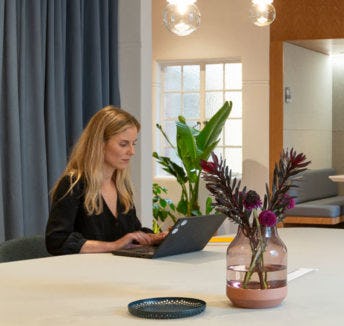
For many parents today, the family home has become their regular coworking space, with the spare bedroom or kitchen table taking the place of a private office. What’s more, working from home now comes with additional challenges in the form of additional babysitting and teaching – making things undeniably difficult. With this in mind, we consulted the experts for their advice on juggling work and family commitments during these tricky times.
Plan, plan, plan
“Overnight your home, office, school and playground are under the same roof. As such, you need to set boundaries, identify goals and develop a plan. Organising, planning and providing structure will increase your families’ daily productivity and success. Wherever possible set boundaries and specific timetables, especially for the children. Sticking to the specific timetables and boundaries will develop the structure of your work activities and the children’s study and playtime need to be successful. Planning is especially important if your home is not big enough to designate specific rooms or areas for each activity and the need for artificial boundaries becomes necessary.”
Blanca De La Rosa is the author of Empower Yourself for an Amazing Career
Make lists (a lot of them)
“People who are used to spending nine-to-five in the office will often find that their day is structured for them. Working at home presents you with a different set of challenges. Old-fashioned though it may seem, I am a slave to lists. Try constructing and sticking to your ‘to do lists’ ensuring they include a balance of work and home life activities.”
Mark Simmonds is the author of Breakdown and Repair: A Father’s Tale of Stress and Success.
Ask your employer for flexibility
“Have an open conversation with your employer. Let them know you can deliver your work, but that you might need to do this differently. It’s the output that’s normally most important, not when it’s done. Most employers are flexible and will recognise the issue, many are having the same problems themselves. In 90% of situations you can find a solution that works for both parties.”
Kevin Green, former CEO of the Recruitment & Employment Confederation and HR Director of Royal Mail. Author of Competitive People Strategy: how to attract, develop and retain the staff you need for business success, published by Kogan Page
Divide and conquer with your partner
“My husband and I split the day in half. I work in the morning whilst he keeps the children alive and semi-educated and then we swap. This way, you both have a chance to get things done and spend an equal amount of time home-schooling the kids so they (and you) don’t get too bored. Keeping a routine is really helpful for productivity and maintaining a positive mindset, so scheduling in times for certain household duties can be helpful in more ways than one. In our house, the laundry goes in on a Saturday morning, the bathrooms get done on a Monday night, and the hoovering is done every half hour because we have two small kids!”
Anna Whitehouse, co-author of ‘Where’s My Happy Ending?’ and Heart FM radio presenter
Ask for what you need
“When we know our own needs better, we have a greater hope of being able to articulate them. Be bold and ask for what you need – don’t expect others to guess what might help you. Equally don’t assume others’ needs are the same as yours – make time to keep checking in.”
Alison Reynolds is a member of faculty researching organisational issues at Ashridge Executive Education, Hult International Business School. She is also the co-author of What Philosophy Can Teach you about being a better leader
Use the opportunity to learn and grow
“What can you learn from your family dynamic that could support you in your leadership or professional development? Systemic questions can help you become aware of family patterns that you unconsciously take to work with you. Ask yourself these questions about your family system and the parallels you see in your professional life: what does it take to ‘belong’? Who am I loyal to? What am I giving/what am I taking? What is my place in this family/organisation? The answers can give you new insights, and most importantly more choices, as you are bringing some of those automatisms to the conscious level.”
Mieke Jacobs and Paul Zonneveld, transformational facilitators, experts in systemic intelligence and co-authors of Emergent.
Looking for more tips on making the most of working from home? Or just looking for some light reading? Find more in Spaces magazine
Share this article
 Read now Remote work and its impact on the environment
Read now Remote work and its impact on the environment
 Read now Cheat sheet: what business leaders need to know about digital transformation
Read now Cheat sheet: what business leaders need to know about digital transformation